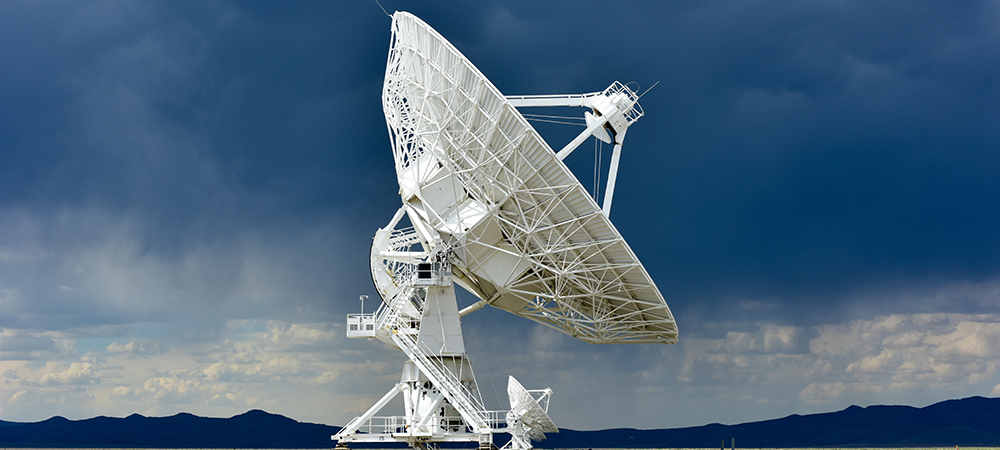Elizebeth Varghese, Co-Chair of the Entrepreneurship and Innovation Committee at Columbia Business School (Women’s Circle), Council Advisor for the SETI Institute, and leader of Human Capital Services for Deloitte’s Space Sector, on the potential for Quantum Computing and space exploration to further transform and shape society.
New means of transportation, conducting business and information sharing have changed how we live and work. We are no longer confined to a small circle of our own neighborhoods and villages for our jobs or personal networks. Connection and opportunity are as close as our fingertips to a universe full of possibility. Quantum Computing and space exploration will further transform and shape society.
So, how do we navigate this brave new world? How do we engender functional trust that helps us live and work? Our barrier to operating seamlessly lies in how we trust each other as we share and exchange information about our lives, our credentials, and our contributions. And as we work together across geographical boundaries, the next revolution is in trusting each other in our connectivity.
And trust is then the biggest need and enabler to work together across the world. Our digital identity is increasingly critical to how we engage with all the transactions and processes of everyday life. The pandemic highlighted the need for valid digital identity as work and related activities became increasingly remote.
Think of all the people on our planet, about 8 billion. That really is our talent ecosystem because each of them has the skills to contribute. Only 61% of the world’s workers are formally employed; others make their living in the informal economy. In Africa, about 86% of employment is informal; in Asia, it’s 68%].
Right there, those are millions of people left out of the equation, partially because of education, partially because they don’t have access to formal sector jobs.
So, if they were able to participate—with validated identity and credentials, we would be much more effective as a global community?
Our ability to connect in the digital age requires trust. Blockchain technology can help bridge the current connection gap and help change the world for the better. Through trust based on accessible, immutable data, it will improve inequality here on Earth by unleashing the potential of all people and human intellect, no matter where they are based.
The rise of Quantum Computing will transform data processing and encryption. Quantum Computing will result in the acceleration of AI and Machine Learning, which will require more governance and validation of human versus machine identity.
The democratization of technology is also democratizing access to space. Space has been democratized as every nation reaches upward to access the skies above us. There is recognition of the potential and harnessing Earth observation data, which, when manipulated by AI and Quantum Computing, will give us new insights into challenges as varied as flood management to malaria mitigation to defense. This global progress and participation will compound the need for solutions to validate and trust as we work and collaborate virtually across interplanetary distances.
Remote sensing satellites comprise approximately one-third of all operational satellites currently in orbit and we can measure only over half of the essential climate variables from space.
The government of the Dominican Republic has already used space data solutions to eliminate disaster risk for a country long plagued with hurricanes and tropical storms.
The capacity to collect information about adverse weather conditions that might impact not only homes but also crops – or the ability to foresee potential droughts or floods, which we can track using remote sensing satellite data – is a game-changer. We’re obtaining more critical data daily on whether preventative actions to slow climate change are working and to what extent.
Our ability to observe Earth’s orbit variation in correlation to the causes of climate change has provided a deeper understanding of the issue.
Satellite imaging of forest fires and oceanographic data helps detect history, patterns and changes in intensity.
The prediction of areas where climate change will progress at a faster rate will allow time for safety precautions to be taken and implemented quickly.
Optimizing the efficiency of green energy sources via remote-sensing technology can be captured by satellites.
We can monitor carbon dioxide emissions from cars and pinpoint forest fire locations to expedite the process of putting them out.
Additionally, they provide critical data on how effective preventative actions to slow climate change are and to what extent.
Just imagine the possibilities as our technology advances.
The growing need for talent to fulfill new jobs in relation to space and technology is of the utmost importance. We can use Blockchain to disrupt traditional ways of recruiting, learning, and accessing opportunities.
We have the opportunity to streamline processes to improve data integrity and access to verified information.
Click below to share this article

